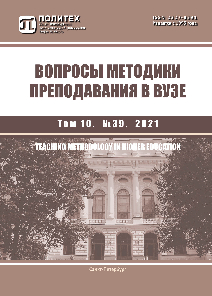Organization of learning activities among non-linguistic university students in mastering listening comprehension using digital tools
From the standpoint of personality-activity, communicative-cognitive and competence approaches the article considers the problem of organizing and managing the learning activities of non-linguistic university students in mastering foreign language listening comprehension with the help of digital tools and services. It shows the sets of auditory-thinking and universal learning actions, which are necessary for students at each phase of learning activities in the process of solving different types of learning speech-thinking tasks (reproductive, searching, creative), adequate to the stages of teaching listening comprehension (habit formation and improvement, skill development, communication functioning) while doing corresponding multifunctional auditory-thinking exercises. The product of this process is reproductive, inductive and deductive inferences, reflecting a selective, basic and complete understanding of a foreign language utterance, which is considered as a positive result of the listener’s perceptual and mental activities. Relying on general didactic regularities and principles of the learning process, as well as on scientific research in the field of foreign language digitalization in education, the introduction of digital tools into learning activities at each of its phases contributes to a more successful perception, comprehension and understanding of foreign language speech among non-linguistic university students. The latter makes a significant contribution to the development of universal, general professional, professional and digital competences of future specialists and allows them to be in demand in the modern labor market.



